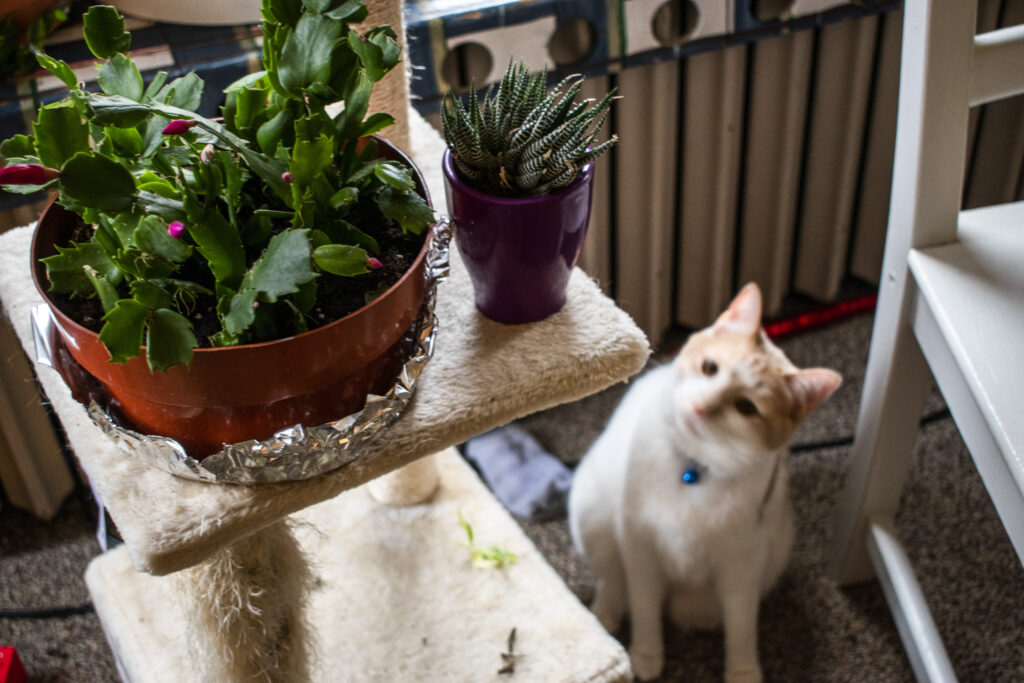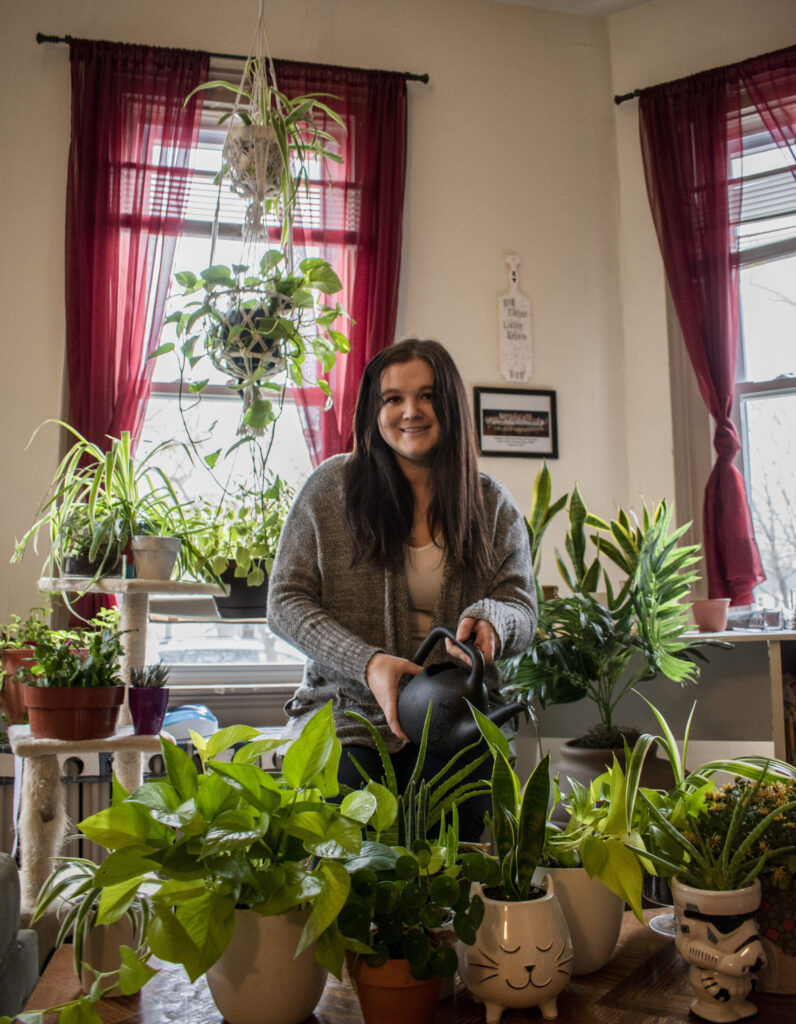Between lockdowns and quarantines and online classes, students have spent more time at home this year than ever and some students have turned to raising plants to keep themselves busy this year.
Buying and caring for houseplants has become more popular this year for a number of reasons, whether it’s simply to get a hobby, for the look or to improve mental health. Second year pharmacy student Erica Foote started her collection of plants after reading an article about how her cats litter box release toxins in the air. The solution? Getting a snake plant, one of the number one air purifying plants.
“I got them for that but I also read all these articles about how good they are for your mental health,” Foote said. “I lived alone in quarantine, so I was like let’s get some plants.”
Foote said that the plants helped her mental health, especially during quarantine, because it was something fun for her to do and it brightened up her room.
“It gives you something to take care of,” Foote said. “I like seeing them grow and when they’re doing really well it makes me excited. Of course I have killed plenty of plants. Ask anyone with plants, it happens. Especially if you don’t know what you’re doing.”
The learning curve of how to take care of different plants was one of Foote’s favorite part of taking care of them. An example of this would be for Foote’s Christmas cactus, which is also her favorite plant. In the winter the cactus blooms, producing small, bright pink flowers.

Plants were made popular this year not only for the mental health benefits but the aesthetic.
When Foote started getting into plants after she started listening to a podcast called Bloom and Grow Radio. She talked about Instagram in the podcast so Foote went and made a second Instagram account for her plants.
“It is such a cool community and you get to see things in other regions,” Foote said.
She now has upwards of 20 or more plants in her apartment. One of the trickier parts of her plant upkeep is where to put them all.
“A lot of people will just get plants and then n0t know where to put them to actually stay alive,” Foote said. “They look really nice in all the corners of your house but they don’t do very well there. When you read a plant care guide they always say low, indirect light and I’m always like what does that mean? So I did some research on that and found out some actual measurements and angles of them.”

Foote’s biggest mistake she made when she got into taking care of plants was over watering. Not all plants need to be watered everyday so knowing how much and when is an important part of plant care.
Forensic biology senior Delaney Fedewa still considers herself a beginner when it comes to houseplants.
“I have many plants. But the plants I find the easiest to take care of are my foliage plants,” Fedewa said. “My Pothos plants do extremely well because they are a low-light plant, which works well for my house since it is part sun, part shade. Snake and Peperomia plants also do really well for environments like this.”
Foote agreed that Pothos plants are great beginner plants.
“You can pretty much forget about them both and it grows and it’s easy to propagate into new plants and share with friends,” Foote said. “A second to that would be any type of snake plant, as they don’t need much light or water and they also are really good for cleaning the air.”
Music & Entertainment Business senior Logan Peterson said the snake plant that he received from his mom grows like crazy and added that avocado trees are easy to grow as well.
Peterson said, “I try to maximize how long they stay in light cause Michigan is so dark in the winter, I only water like once a month, and I move them away from the window at night”
Fedewa said that it is important to remember to bring any of your plants that are being grown outside back indoors. She said the heat in your house can cause the air to become very dry, so she mists the leavers of her plants to increase the humidity.
Students can buy plants at nearly any grocery store or hardware store. For beginners Fedewa recommended green houses.
“I really recommend going to greenhouses to buy your plants, or any small business that may sell plants,” she said. “Meijer does have great beginner plants, but a greenhouse will be more diverse, and you can get answers to your plant questions too.”
For harder to find plants Foote has found many succulent-type plants from Amazon and also uses Etsy for the harder to find varieties on her plant bucket list.
Peterson said the best place to get plants from for him is friends, and he loves propagating and giving them out as gifts.
For gifts, Foote said there are two types of people: people who love to get plants as gifts and people who act like they love them, then let them die a week later. Foote advises people to be careful who they give plants to as gifts before going out and getting one.
Cora Hall and Marissa Russell contributed to the reporting of this article.
